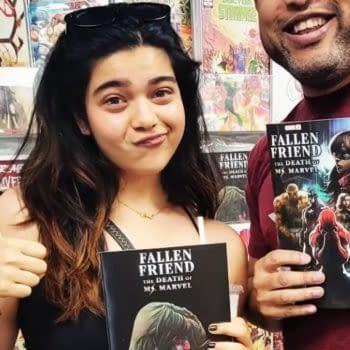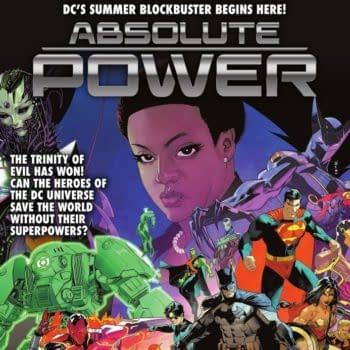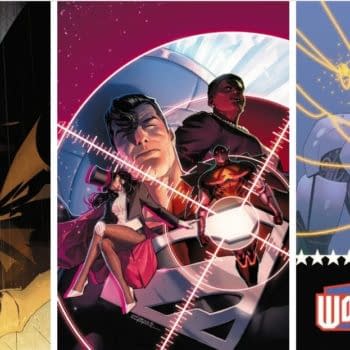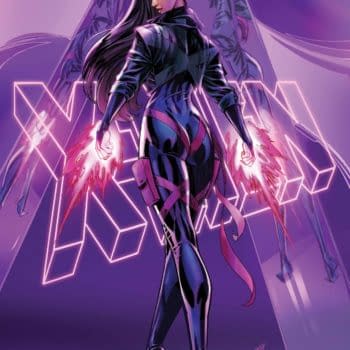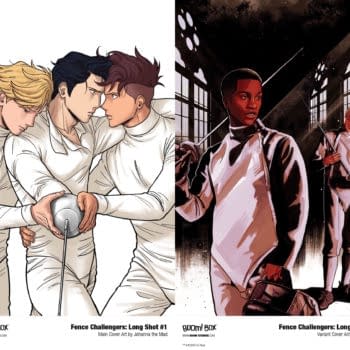Posted in: Comics | Tagged: Comics, entertainment
"A Good Child Will Select The Worst Comics" – How They Actually Talked About Comics In 1942
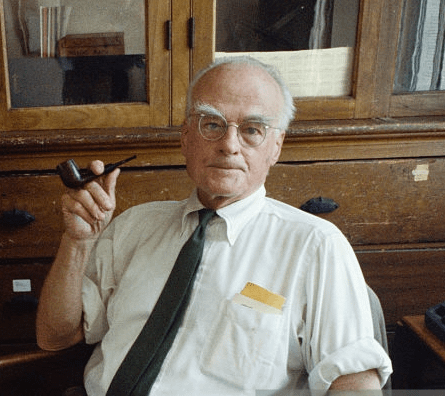
We may have certain ideas regarding how comic books were perceived in the past. This seems to explode many. Telling us "The tendency of the comics is to prolong a period by anticipating it before it arrives, sustaining it during its brief passage, and maintaining its illusion after it is gone."
I like that. A lot. Especially as this article seems to anticipate the kind of arguments that would be made a decade and more later by Wertham but also dismisses them as pointless, in this description of cultural war over comics between the generations.
EVER since the turn of the century when the Yellow Press was named after Outcault's Yellow Kid, the war of the comics has been savagely fought. It has been a bitter civil war with parents on one side and their children on the other. Under leaders like Charles W. Eliot and Kate Douglas Wiggin, and publications like the New Republic and the Chicago Daily News, the parents have been winning the battles but losing the war. That is because the elders find themselves regularly reading the comics and have to fall back on that old line; "We read them to see how bad they are." After half a century of successful attack by the comics we ought to be considering the terms of surrender. We should rise above the battle and take the cold long view.
The article challenges the kind of narrative we have been taught about the way comic books have been perceived over the generations, it is critical but also self-aware of the context of previous criticisms – and future ones.
Thinking back in search of an answer, I have often wondered why our parents forbade us such comics as Buster Brown, who lived in the days of Alexander's Ragtime Band and the leg-o'mutton sleeve. He was a moral if misguided little boy. His virtues are clear when you compare him with a modern killer of fiends such as the Batman, a fiend's fiend. Whatever may be the vices of Superman, Buster was hopelessly good. In retrospect he looks like Little Lord Fauntleroy.
There are many strips which look similarly harmless. Moon Mullins still devotes himself exclusively to the simple old vice of wine, women, and song; and the improbabilities of Orphan Annie are lost in the flow of refugee children. Will our children in their turn look back and find Superman as far short of reality, and are we repeating the error of our parents? Did our parents forbid us Buster because they knew that Batman follows Buster? (And what could follow Batman I know not.)
I believe the answer is Crossed…. but familiar arguments are made. This could be Neil Gaiman talking here.
You will find, for example, that a few of the thoughtful people interested in child education have begun to point out that the children who read comics are also the children who read books. They are, in fact, simply children who read. It's even thought that the comics tend slightly to make readers of children who might not otherwise get the reading habit.
And as for children and parental tastes diverging,
A "good" child will select what at first glance 'will look to you like the worst comics. Each child's selection will give you something of a glimpse of his particular world problem. If you know the gamut of the comics, there can be for you a terrifying pathos in that pile of magazines in your child's life.e.
There's a keen prediction of comic book stylings to come,
In the comic world a top-flight German official flew secretly to England from Germany only a short time before Hess did. To a comics-reading child the Hess flight would seem a thing to be expected. Finally, I know a little girl who wears her cardigan sweater buttoned once at the neck and flung back over her shoulders, the arms hanging free like dislocated wings. That's Superman style and it will be a mode in ten years when that little girl is grown.
And the idea of whatever social change might come in the sixties, being prepared for in the comic books of 1942. And how reading comic books might prepare you for that.
The struggles of '60 are those that go on now in the comics which we wisely denounce. Like all men in the storybooks and out of them, when we are shown the future we scoff with our minds – and with our souls we fearfully await fulfillment.
It's all all right with me. I can take it if the children can; there's only one thing that worries me, and that is: How will those children face their children, who will be the men of the day after tomorrow? After Captain America what?
That's the thing. It's still Batman. It's still Captain America. If anything is wrong with comics it's that the bestselling comics of 1942 are the best selling comics today. Back then the author saw a churning of ideas with the new replacing the old and that was the way of things, however disturbing. But the demands of corporate IP and trademarks have stymied that.
Hail Hydra….






